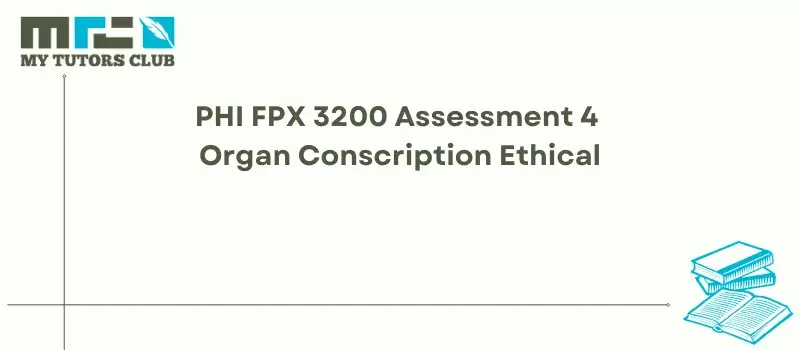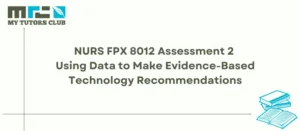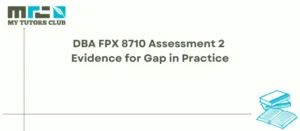Ethical or Moral Considerations Regarding Organ Conscription Policy
While providing professional assistance, doctors ought to conform to ethical issues and medical standards. Clinical benefits professionals rotate around the ailing individual’s deservingness. Nonetheless, the principle of organ conscription focuses on extra ethical difficulties among clinical considerations instructed to authorities. The extraction of cadaveric organs without endorsement is insinuated as organ conscription. Similarly, Dala shows that integrity and respect for independence are central ethical issues concerning organ donation (2015).
Considering the dangers the donor faces, on an incredibly focal level to the level of clinical underhandedness, the moral quandary is key concerning living donor moves. Contributors, for this ongoing circumstance, face serious risks while offering their organs, the major ones being incredible discomfort and short-term inability. The other bet is that traps related to an improvement will occur. According to studies, living donors have a 5% to 10% probability of enduring careful hindrances and a 1% bet of mortality, issues integral to the PHI FPX 3200 Assessment 4 Organ Conscription Ethical.
Informed Consent and Morals
Authentic authorization, furthermore named informed consent, is another moral and ethical concern related to organ conscription. Authentic authorization is a fundamental piece of clinical practice that clinical idea professionals ought to follow while providing their administrations. The inability to follow ethical opportunities presents moral and ethical worries. Opportunity is a focal human principle that doctors ought to maintain while dealing with their clients. Rehearses as organ donation infringes on this honor, prompting ethical worries about whether such guidelines should be finished in networks.
Impartiality and evenhandedness of organ conscription policy
Different factors flourish concerning the inadequacy of increased generosity in organ donation to yield organs as imagined. A focal piece of everybody doesn’t give their organs or never intend to provide their body parts, culminating in a low scattering of body parts. The low degree of donations may be a succinct consequence of an individual’s social and incredible viewpoints about organ donation.
Organ Shortage and Conscription
The uniqueness made by the set number of given body parts and the rising inescapability of ailing individuals who require the organs brings about organ shortage, necessitating the call for organ conscription guidelines. The pivotal target of organ conscription is to change the market parts, the hold, and the demand for painstakingly eliminated organs. The policy is authentic considering that the left, at insistently no point later on, needs the organs, yet the surviving do. Thus, the obligation to give them the organelles is basic.
According to organ transplant protectors, organ donors should help the living by donating key organs to partake in customary presence. Sarah (2012) maintains that the principle of organ conscription is continually chosen because of its importance in alleviating human horror. The probability that the method brings down suffering and pain and saves lives shows its impartiality and worth in execution. When the ongoing circumstance bothers the influenced family, they can be informed of the possible gain of donating body parts and the handiness of the parts to the individual suffering at that specific second and time.
Increasing Involvement in Organ Donation
Raising public mindfulness and instructive efforts is one strategy for dealing with increasing sweeping security from organ donation. Most inhabitants know nothing about the importance of donating organs and conscription. The non-appearance of information concerning the worth of organ donation receives the message from a well horrendous point of view, resulting in more noteworthy social hostility toward organ donation (Shumin et al., 2014). Increasing public mindfulness and learning about organ donation supports individuals’ understanding and urges them to be interested.
The other framework for dealing with take is to give pay to organ donors. The existing dependence on cause can’t be satisfactory to revive the procedure of various organs for all of the ailing individuals who need the organs, culminating in ceaseless patient fatalities yearly. The introduction of pay-for-organ donation as a financial and social honour revives an increase in the number of open organs.
The Importance of Organ Consent in Organ Donation
Indeed, even with intensified government endeavors to further draw in donor numbers in the country, the demand for donations remains satisfactorily high for minor organ plans. Therefore, it is pivotal to gain all attainable exchange possibilities. Indeed, even with the need to further develop organ donation, informed consent should be protected to forestall violating individual opportunities. Organ consent is fundamental in the clinical industry.
The clarification is associated with certainty among patients and clinical idea professionals. Maintaining authenticated consent interfaces with donors to continue donating organs since they think clinical institutions honor their longings. The inability to conform to informed consent inhibits ailing individuals from visiting the clinical benefits offices in a shortfall of certainty and trust, an imperative issue examined in the PHI FPX 3200 Assessment 4 Organ Conscription Ethical.
Possible legislation toward increasing donor organ availability
A substitute method to support donor organ donation is the execution of guidelines that endorse the storing and maintaining of organs for donation in a dead body following the destruction of an individual in the intense thought setting. The maintenance of the decedent’s body parts shouldn’t for even a second worry about an express endorsement from the decedent’s relatives or the following. Rather than obtaining consent to get and shield the parts while the family is misgiving and profoundly bewildered, clinical benefits professionals honor the family to increase its future donor individuals.
According to Caplan, if the body parts are obtained and the family members are in a normal state, one can obtain endorsement from the family a short time later at the clinical office (2016). The normal framework for gaining endorsement is often followed. The policy’s inspiration is to guarantee that clinical idea professionals are certain relatives and associates’ psychological delicacy. The guideline forestalls the endeavor to convince Relatives to contribute yet instead embraces the correct point of view: requesting and gaining consent to use the organs. Read more about our Sample PHI FPX 3200 Assessment 3 Should We Withhold Life Support for complete information about this class.
References
Caplan, A. L. (2016). Finding a solution to the organ shortage. CMAJ, 188(16), 1182-1183.
Dalal, A. R. (2015). Philosophy of organ donation: Review of ethical facets. World journal of transplantation, 5(2), 44.
Munson, R. (2014). Intervention and reflection: Basic issues in bioethics (concise ed.). Boston, MA: Wadsworth. Spital, A., & Erin, C. (2002). Conscription of cadaveric organs for transplantation: Let’s at least talk about it. American Journal of Kidney Disease, 39(3), 611–615. Sahr, D. R. (2012). Meeting Resistance to a Policy of Cadaveric Organ Conscription: A Discussion of the Important Issues and Arguments.
Shumin, X., Woo, S. M. L., & Lei, Z. (2014). Strategies for changing negative public attitudes toward organ donation in the People’s Republic of China. Patient preference and adherence, 8, 25.




